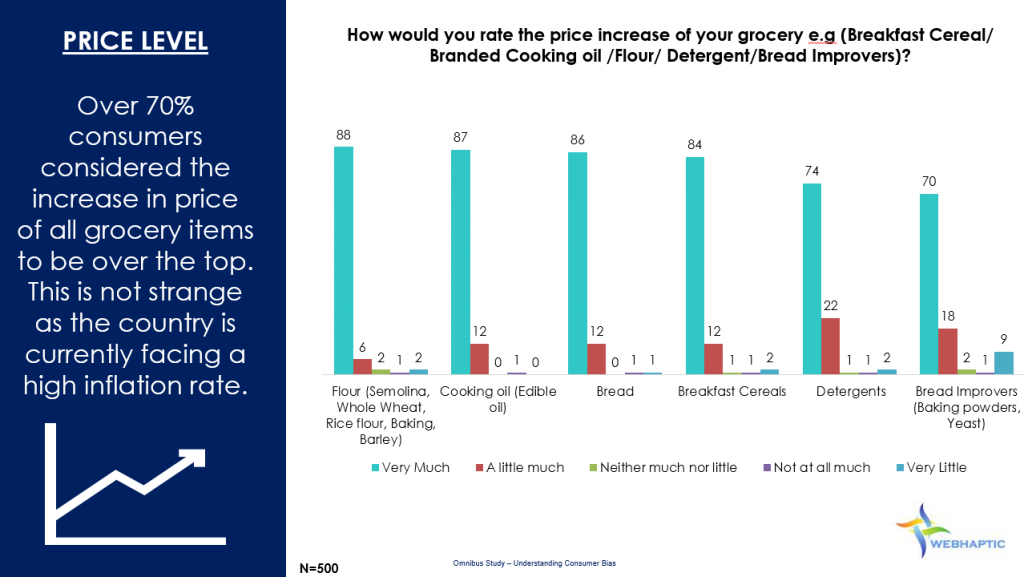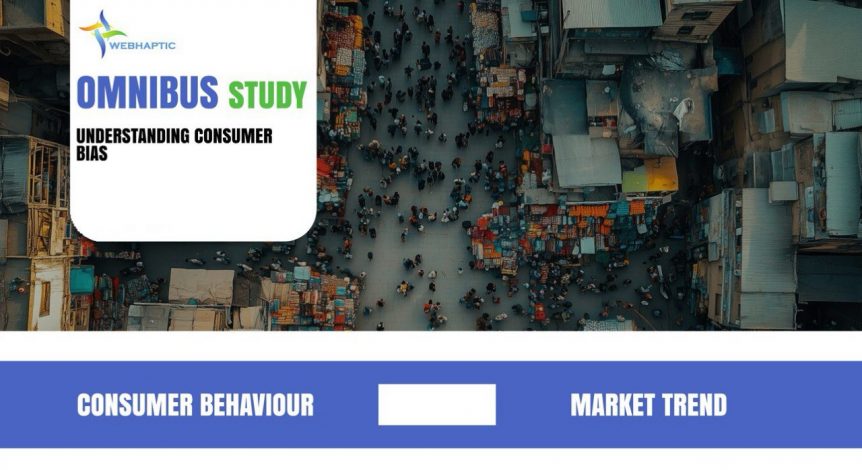This article explores how Nigerians are adjusting their grocery shopping habits, focusing on the choices they make and the factors shaping their decisions.
Insights from Webhaptic Intelligence’s Omnibus Study in Nigeria
How do Nigerians make decisions when shopping for groceries? This is one question that may seem complex for many business managers.
With over 200 million population in Nigeria and rich cultural diversity, it presents a unique challenge when it comes to defining a singular consumer profile.
However, despite these variations, there are key purchasing patterns and behaviours that businesses must recognize to effectively target their ideal customers.
With the rise of economic challenges, consumer purchasing habits have rapidly evolved, influencing product choices, brand preferences, and shopping frequency.
Webhaptic Omnibus survey delves into how economic pressures are reshaping grocery shopping habits in four major cities—Kano, Enugu, Rivers, and Lagos. It uncovers the subtle shifts in consumer priorities, from brand loyalty to price sensitivity, and highlights the factors that influence purchasing decisions.
For businesses, these insights are more than just data—they offer a clear roadmap to adapting marketing strategies, product offerings, and customer engagement approaches in line with the realities of today’s market.
Understanding Consumer Bias in Grocery Shopping
Consumer bias significantly shapes shopping habits, from brand loyalty to price sensitivity. This study highlights the key biases influencing Nigerian consumers when purchasing groceries:
- Brand Loyalty vs. Price Sensitivity: While some consumers remain loyal to their preferred brands, many are now prioritizing affordability over brand recognition.
- Packaging and Perceived Quality: Shoppers often associate premium packaging with higher quality, influencing their purchase decisions.
- Influence of Promotions and Discounts: More consumers are making purchasing decisions based on promotional offers, a shift from traditional brand loyalty.
Consumer Adaptation and Purchase Attitudes Towards Grocery Items
While economic pressures have influenced what Nigerians buy, they’ve also reshaped how they shop. Beyond just switching brands or cutting costs, consumers are adopting new shopping habits—like buying in bulk to save money, seeking out local markets for better deals, or prioritizing essentials over impulse purchases.
Results from our survey examine these adaptive behaviours, offering insights into the evolving mindset behind grocery purchases in today’s economic climate.
According to our Omnibus Study, Nigerian consumers are adjusting their shopping habits due to rising costs, and prioritizing essential goods while opting for low-cost alternatives.
“Over 70% consumers considered the increase in price of all grocery items to be over the top. This is not strange as the country is currently facing a high inflation rate”.
Nonetheless, some essential items like cooking oil, washing soap, and bread are typically restocked by consumers more frequently in a month compared to other household items.
Bulk buying remains common for non-perishable items, while perishables are bought in smaller quantities more frequently.

Despite the high price of certain grocery items consumers still prioritize them as necessities although they have seen reduced purchase frequency.
What Drives Purchase Decisions?
In the survey, it was seen that some factors are commonly prioritized by consumers when making grocery purchase decisions. Such as:
1. Consumers’ preferences across multiple categories are majorly influenced by taste.
2. Health benefits and quality of the product are the topmost considerations, especially for staple goods.
3. As the economy hits hard on buyers’ purchasing power, most people tilt towards affordable options.
If you’re looking to understand these evolving trends and how they impact your business, get full access to our report which offers clear, data-backed insights and practical recommendations. For more details, email us at info@webhaptic.com

